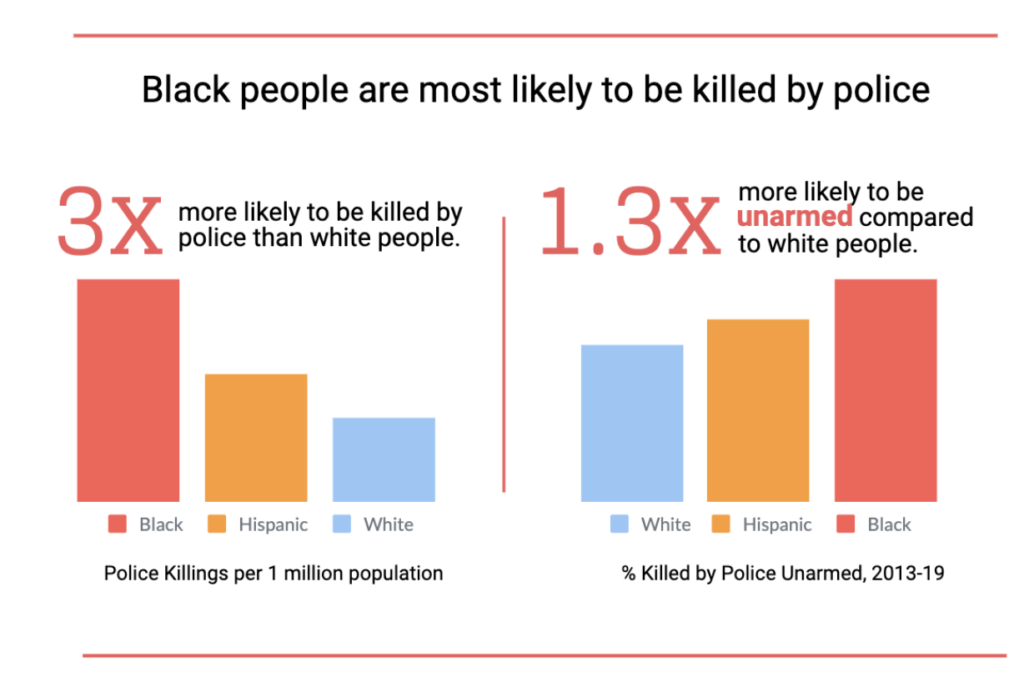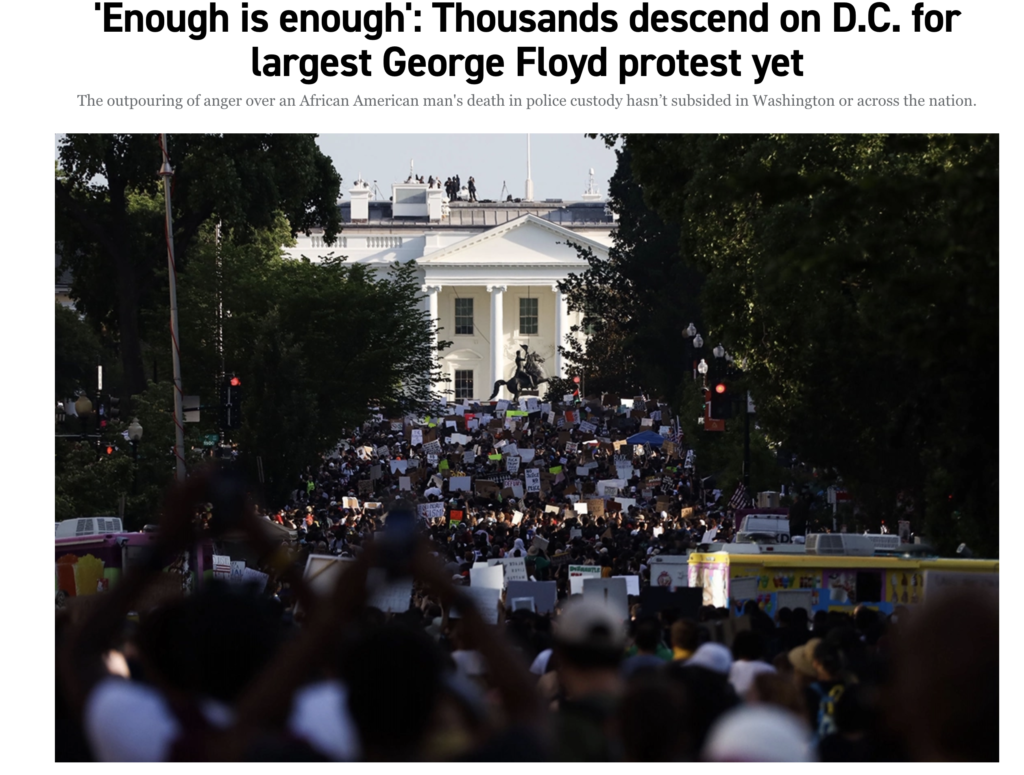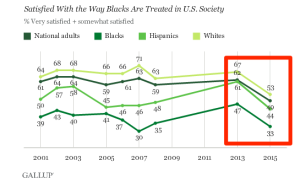During Black Lives Matters’ (BLM) ten-year existence, many liberal and moderate codgers have been criticizing the movement’s “branding” and tactical approach.
Ruy Texiera from the American Enterprise Institute is among the more articulate of those critics. This is Texiera in The Economist, a long excerpt to illustrate just how snotty some of this liberal backlash has gotten:
The question of whether the pervasive push for wokeness in America has reached its apogee has different answers depending on where you look. My approach to answering it draws on the decades I have spent analysing American politics. Socially speaking, the peak was clearly attained during the summer of 2020, when no one outside of right-wing circles dared to dissent from the Black Lives Matter (blm) orthodoxy that quickly consumed the country’s discourse. The murder of George Floyd at the hands of police was the catalyst, but served as just one example of how black people were killed and oppressed every day, the victims of structural racism. America was a white-supremacist society, the narrative went; every white person was complicit in maintaining and benefiting from the system, and every American’s moral duty was to endorse this view. Knees were duly taken on sports pitches, black squares and other indications of blm support appeared in social-media profiles, and copies of Robin DiAngelo’s “White Fragility” and Ibram X. Kendi’s “How To Be an Anti-Racist” were dutifully purchased.
This was a moral panic. Progressive elites and their institutions rushed to embrace radical race essentialism—the idea that race is the primary driver of social inequality and that all whites should be viewed as privileged and all “people of colour” as oppressed—supported by millions of protesters who skewed educated, liberal and young. The violence that attended some of these protests was defended as the unavoidable cost of a righteous uprising.That it was mostly directed against property accumulated under white supremacy provided a ready-made moral justification.
At the same time, the slogan “defund the police” became popular in protest circles, linking the two messages in the nation’s consciousness. The woke view soon expanded far beyond opposing structural racism to envelop the entirety of identity politics—targeting ableism, sexism, transphobia and other forms of “intersectional” oppression that were presumed to be everywhere in America. Language policing, and self-policing, was rampant.
“Moral panic” indeed. This guy is a center-left pundit, not a Trumper, and he has plenty of company.
Some BLM critics misinterpret the BLM name, claiming it implies that other lives don’t matter. Others understand the intent of the name, but deem it too provocative and/or nuanced to be effective.
Many thought BLM was “divisive,” and lectured young activists to have more “unifying” messages. Lots of us, me included, grumbled about BLM’s more disruptive awareness-raising tactics, such as blocking traffic and kneeling peacefully during the playing of the national anthem at sporting events.
Many warned that Democrats’ support for the BLM movement would cause the party to look too radical and that would cause massive electoral losses that would hurt the BLM policy agenda.
I confess I was sometimes a critic and always a fretter. For instance, I wrote a cranky post about the Twin Cities Marathon route potentially being blocked.
In retrospect, I was wrong. I was correct that the provocativeness of the name and tactics undoubtedly did irritate many in my circles. But I have proven to be wrong about the long-term effectiveness of BLM’s approach.
Keep in mind the obvious: BLM’s goal wasn’t to keep privileged people like me comfortable. On the issue of police brutality and racism, its goal was to change hearts, minds, and policies. The goal of BLM’s provocative tactics was to ensure that Americans would stop shrugging off the police killings of George Floyd, Philando Castille, Freddie Gray, Breeona Taylor, and so many others, and the overall trend of police disproportionately killing black people.

On those measures, the only measures that really matter for people of color suffering police abuse, BLM has been a pretty spectacular success.
BLM’s Impressive Achievements
Instead of getting ignored by the public, media, and policymakers, like so many other progressive movements, BLM’s series of attention-grabbing actions changed public attitudes about police racism and brutality.
As the chart below shows, during the BLM era Americans” belief that black people receive unequal treatment from the police has increased significantly, despite aggressive, well-funded pushback by mostly conservative apologists of abusive policing.

Along with the change in attitudes about policing, support for a broad range of police reforms has won the support of a majority of Americans. When Gallup surveyed Americans about a dozen police reforms, only defunding, disarming, and abolishing the police are supported by fewer than 50% of Americans. Even among strong supporters of BLM, I’m guessing those things would probably poll poorly. But other major previously unthinkable reforms now have overwhelming public support. For instance, an impressive 92% of Americans want stronger policies to remove abusive police and 68% support ending “stop and frisk” practices.

These BLM-driven changes in attitudes have led to the passage of many police reforms. The National Conference on State Legislature reports that an astounding 300 police reform bills have been signed into law in the BLM era. Politicians noticed the BLM-driven change in public attitudes and acted accordingly.
Even President Biden, who was perhaps best known during his long U.S. Senate tenure for passing police-endorsed “tough on crime” legislation, signed an executive order enacting sweeping police reforms. Biden’s executive order mandates body-worn camera policies, bans chokeholds and carotid restraints, restricts the police use of military equipment, requires a number of constructive changes for police training, and creates a national database for tracking use-of-force incidents, among many other improvements.
Think about what a dramatic change in direction that is for Biden. Remarkable. Would it have happened without BLM shining the light on this issue?

In the wake of the weeks of massive BLM protests in the Twin Cities reacting to George Floyd’s murder by police officer Derek Chauvin, the Minnesota Legislature has also passed a number of police reforms. In 2020, a bipartisan bill was signed by Governor Walz that mandated officers to intervene when they become aware of misconduct, banned warrior-style training, and strengthened independent oversight of law enforcement.
Now that Republicans no longer control the Minnesota Senate, in the coming weeks Minnesota DFL legislators will attempt to pass additional police accountability reforms that Republicans blocked in 2020, such as ending qualified immunity so officers can be sued, banning no-knock search warrants, and extending the statute of limitations for people to bring a wrongful death lawsuit against officers.
Meanwhile, Democratic politicians listening to BLM on these reforms didn’t destroy their electability, as so many BLM critics promised would happen. In 2020, President Donald “when the looting starts the shooting starts” Trump was soundly defeated. The BLM-Critic-in-Chief lost the popular vote by the largest margin for an incumbent president with only one main opponent since Herbert Hoover.
In the 2022 mid-term elections, Democrats faced an incredibly heavily funded onslaught of ads falsely portraying their embrace of BLM-backed police reforms as being equivalent to the unpopular fringe call to “defund the police.” The Republicans could not have played that card more aggressively. Despite the wave of attacks, Democratic candidates did dramatically better than the historic trends suggested was possible.
My generation of progressives has given lip service to equality and civil rights. We assured everyone that we’re “color blind.” We wag our fingers when people make racist comments. We dutifully post our MLK quotes on MLK Day. Good for us.
But the reality is, those things didn’t change the day-to-day threat police brutality posed for black people. Our more genteel approach achieved nothing close to the impressive list of achievements being produced during the discomforting BLM era. Despite all of my generation’s carping about BLM from the sidelines, Black Lives Matter actually mattered.

 For instance, between 2013 and 2015, Gallup finds
For instance, between 2013 and 2015, Gallup finds